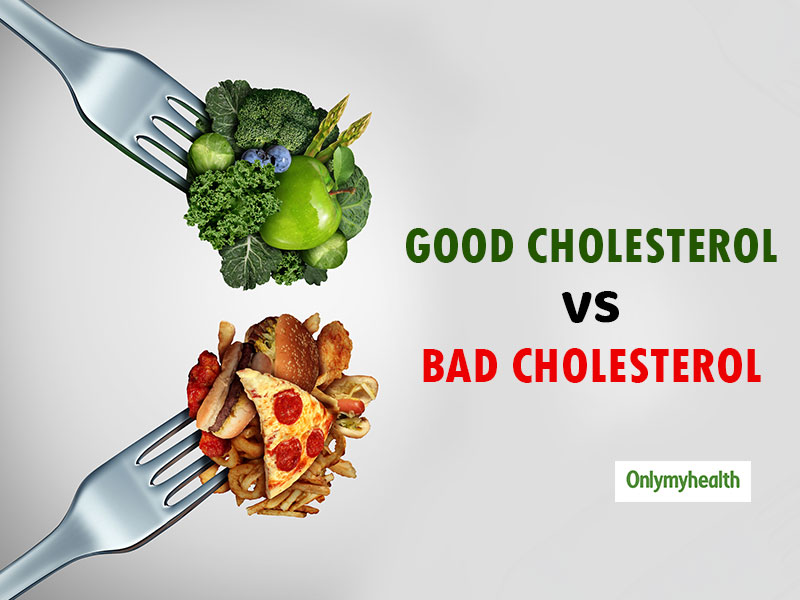
Cholesterol is a type of lubricant found in blood cells. It works by building hormones, keeping cells in the body healthy. Due to an unhealthy or sedentary lifestyle, the problem of high cholesterol is rampant. If not controlled in time, it can lead to heart diseases. First of all, you should know that cholesterol is the fat stored inside the body, which provides energy to the cells. There are two types of cholesterol in our body, good cholesterol (HDL) and bad cholesterol (LDL). It is necessary to balance the amount of both cholesterols in the body; otherwise, the risk of heart diseases increases three times. The liver makes about 80 per cent of cholesterol in our body, and we consume the rest of the food.
Table of Content:-

Good Cholesterol (HDL)
Good cholesterol (high-density lipoproteins) is high in protein and HDL contains 25–20% of the blood. It is essential to have the right amount of HDL in the blood as it works to protect the heart from the risk of an attack or a stroke. This cholesterol type also helps to remove bad cholesterol from the arteries, limiting the chances of any blockages in the arteries.
Also Read: Importance Of Choosing The Right Cooking Oil
Bad Cholesterol (LDL)
Bad cholesterol, i.e. low-density lipoproteins, have a high amount of fat along with protein. Therefore, high levels of bad cholesterol in the body can be harmful. More of this cholesterol type can lead to blockages in the arteries of the heart and brain. This increases the risk of heart attack, arterial blockage or stroke.
The Healthy Cholesterol Range

There should be a balance of good and bad cholesterol in the body for complete health and wellness. The normal cholesterol in the body should be 200 mg / dL or less. Borderlines must be between cholesterol 200 to 239 mg / dL and high cholesterol around 240mg / dL.
Also Read: The Many Faces of Hypertension
How Does Cholesterol Rise In The Body?
Cholesterol levels remain low in women before menstruation begins, but after that, cholesterol is a common health concern in women more than men. However, from 60 to 65 years of age, cholesterol increases equally in both. Cholesterol deficiency in women can lead to premature babies. It is essential to keep a check on your cholesterol levels irrespective of the age or gender.

In many cases, cholesterol can also be a genetic problem. Also, people with diabetes, hypertension, kidney disease, liver disease and hyperthyroidism also have elevated cholesterol levels.
Following are some tips that can help you manage the cholesterol levels in the body:
- Diet: It is essential to have the right diet to keep cholesterol under control. To control this diet, take more green vegetables, fruits, fresh fruit juices, coconut water, dry fruits, green tea, oats, lemons, olive oil and whole grains.
- If you want to control cholesterol level, then avoid alcohol, tobacco, cigarettes, junk food and aerated drinks. Also, avoid taking processed food and try to make things as natural as you can.
- Home Remedies: Two cups of green tea throughout the day keeps cholesterol under control.
- Fenugreek seeds also help to reduce cholesterol and triglycerides levels in the body. Have a glass of fenugreek water in the morning, and you are good-to-go for the day.
Read more articles on Heart Health
How we keep this article up to date:
We work with experts and keep a close eye on the latest in health and wellness. Whenever there is a new research or helpful information, we update our articles with accurate and useful advice.
Current Version
